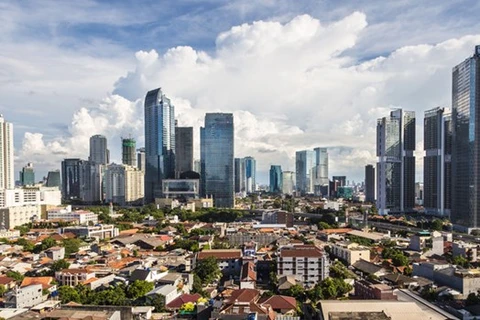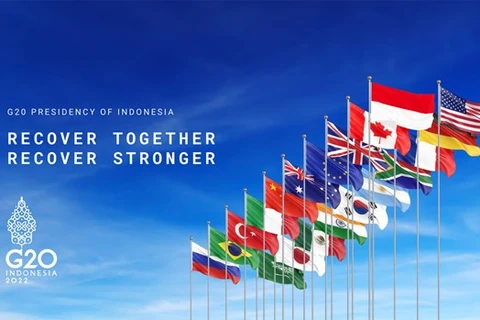 A motorised threewheeler with QR code in Lapangan Taruna Remaja, Kota Gorontalo, Gorontalo, Indonesia (Photo: jakartaglobe.id)
A motorised threewheeler with QR code in Lapangan Taruna Remaja, Kota Gorontalo, Gorontalo, Indonesia (Photo: jakartaglobe.id)
Consumers and merchants in the countries can make and accept payments instantly with the QR code, said Doni P Joewono, deputy governor of Bank Indonesia, at an Indonesia’s G20 Presidency side-event recently.
He added that the cross-border QR payment will enable more efficient transactions, while also spurring the digitalisation of trade and businesses.
The linkage also helps maintain macroeconomic stability by promoting a more extensive use of the local currency settlement (LCS) framework.
The initiative of linking cross-border payments through the interconnection of national QR codes of the two countries is an implementation of the Indonesian Payment System Blueprint 2025, Doni said, referring to Bank Indonesia’s plan on navigating the payment system industry amid the digital economy era.
Digital payment services will also boost financial inclusion for the micro, small, and medium enterprises (MSMEs), particularly those who are still lacking in financial literacy.
Earlier, BI announced its partnership with BNM to launch a QR cross-border payment system as efforts by Southeast Asian central banks to sest up a quick and effective retail payment system in the region./.























